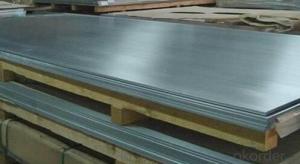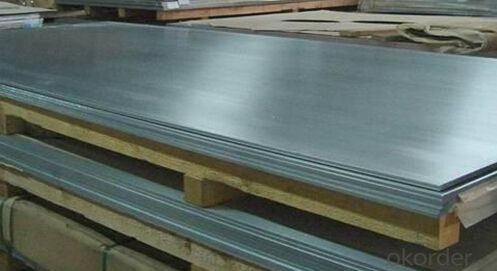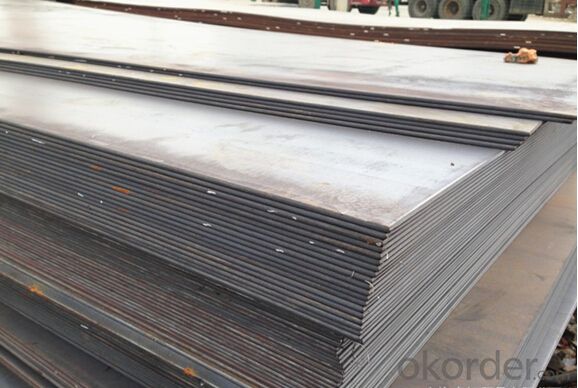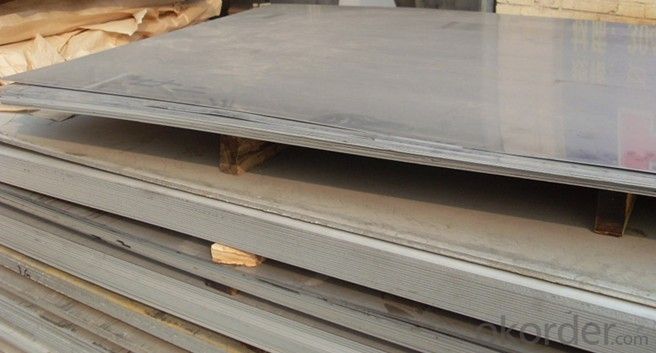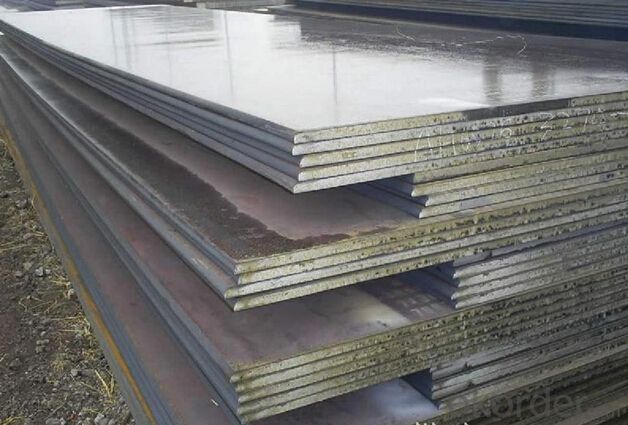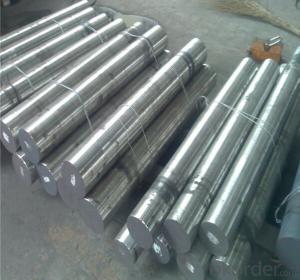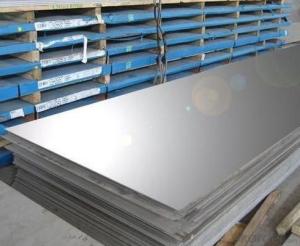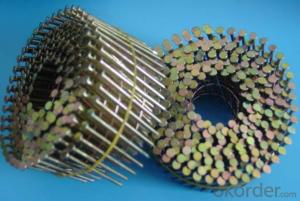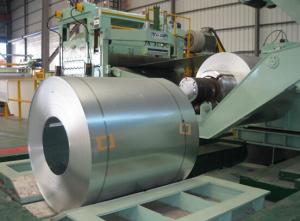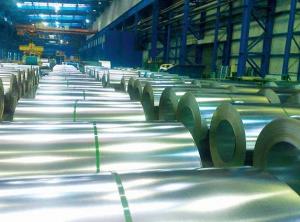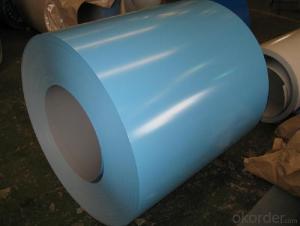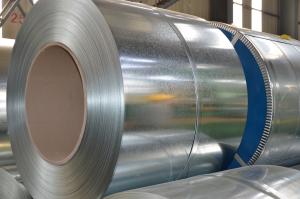Electro Galvanized Steel Coils Plate Used on Boat
- Loading Port:
- Tianjin
- Payment Terms:
- TT OR LC
- Min Order Qty:
- 5 m.t.
- Supply Capability:
- 10000 m.t./month
OKorder Service Pledge
OKorder Financial Service
You Might Also Like
Specification
Electro Galvanized Steel Coils Plate Used on Boat
Specification of Electro Galvanized Steel Coils Plate Used on Boat
| goods | Hot dip galvanized steel coil and sheet |
| Technical Standard: | JIS 3302 / ASTM A653 / EN10143/EN10327 |
| Grade | DX51D / DX52D/ DX53D/ S250,280,320GD |
| Width | 500/650/726/820/914/1000/1200/1219/1220/1250mm |
| Thickness | 0.17-1.6mm (0.25-0.45mm is the most advantage thickness) |
| Type of coating: | galvanized |
| Zinc coating | Z60-120g/m2 |
| Surface treatment | chromed / skin pass/ oiled /un oiled /slightly oiled/ dry |
| Surface structure: | zero spangle / minimized spangle / regular spangle/ big spangle |
| MOQ | 5 Tons |
| Package: | Properly packed for ocean freight exportation in 20''containers |
| Price terms | FOB,CFR,CIF,CPT.CNF,CIP |
| Payment terms | 30%TT in advance+70% TT or irrevocable 70%L/C at sight |
| delivery time | 7days after receipt of 30% TT |
Details of Electro Galvanized Steel Coils Plate Used on Boat
| Material | Tensile test | ||||||
| Rel | Rm (MPa) | Elongation | |||||
| (MPa) | 1.8~<2.0< span=""> | 2.0~<2.5< span=""> | 2.5~<3.2< span=""> | 3.2~<4.0< span=""> | ≥4.0 | ||
| SPHC | ≥270 | ≥29 | ≥30 | ≥31 | ≥32 | ≥32 | |
| SPHD | ≥270 | ≥32 | ≥33 | ≥35 | ≥37 | ≥39 | |
| SPHE | ≥270 | ≥33 | ≥35 | ≥37 | ≥39 | ≥41 | |
| SS330 | ≥205 | 330~430 | ≥26 | ||||
| SS400 | ≥245 | 400~510 | ≥24 | ||||
| SAPH370 | ≥370 | ≥255 | ≥32 | ||||
Supplier of Electro Galvanized Steel Coils Plate Used on Boat
CNBM International Corporation is the most import and export platform of CNBM group(China National Building Material Group Corporation) ,which is a state-owned enterprise, ranked in 270th of Fortune Global 500 in 2015.
With its advantages, CNBM International are mainly concentrate on Cement, Glass, Iron and Steel, Ceramics industries and devotes herself for supplying high quality series of refractories as well as technical consultancies and logistics solution.
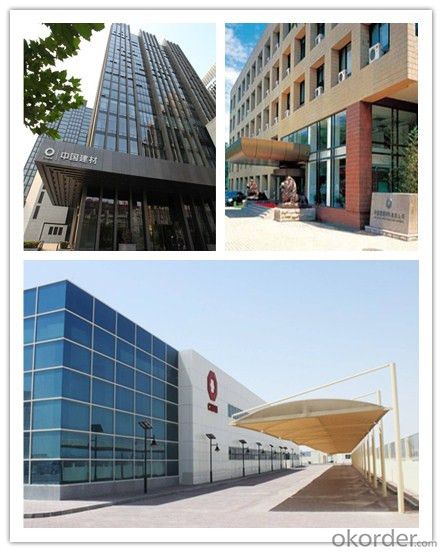
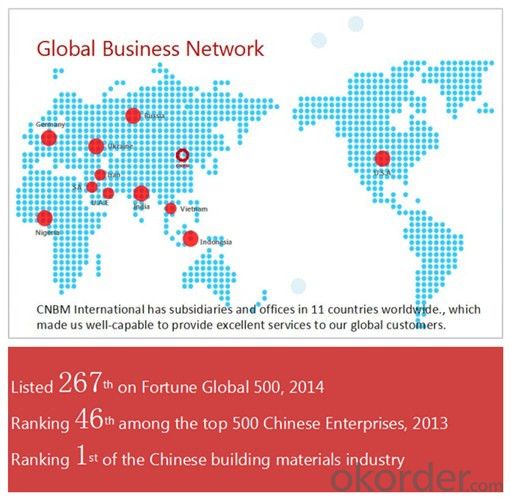
Delivery of Electro Galvanized Steel Coils Plate Used on Boat
Packaging Detail | Sea worthy packing /as per customer's packing instruction |
Delivery Detail | 15 ~ 40 days after receiving the deposit |
Products Show
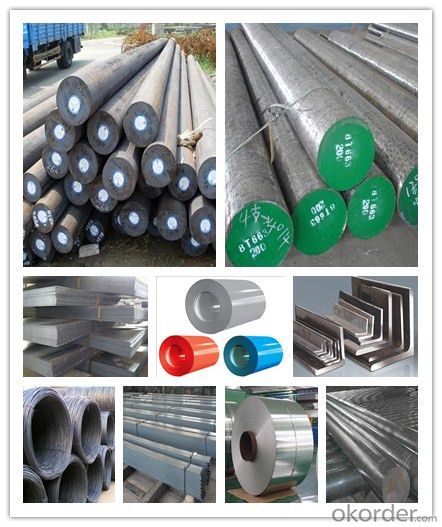
FAQ:
Are you a trading company or manufacturer? | Manufacturer |
What’s the MOQ? | 3 metric ton |
What’s your delivery time? | 15-35 days after downpayment received |
Do you Accept OEM service? | Yes |
what’s your delivery terms? | FOB/CFR/CIF |
What's the Payment Terms? | 30% as deposit,70% before shipment by T/T |
Western Union acceptable for small amount. | |
L/C acceptable for large amount. | |
Scrow ,Paybal,Alipay are also ok | |
Why choose us? | Chose happens because of quality, then price, We can give you both. Additionally, we can also offer professional products inquiry, products knowledge train (for agents), smooth goods delivery, excellent customer solution proposals. |
What's your available port of Shipment? | Main Port, China |
What’s your featured services? | Our service formula: good quality+ good price+ good service=customer's trust
|
Where are your Market? | Covering more than 160 countries in the world |
- Q: What are the different surface modification techniques used for special steel?
- There are several surface modification techniques used for special steel to enhance its properties and improve its performance in specific applications. Some of the common techniques include: 1. Nitriding: Nitriding is a surface hardening process that involves the diffusion of nitrogen into the steel surface. It forms a hard layer of nitrides, which significantly increases the surface hardness, wear resistance, and fatigue strength of the steel. 2. Carbonitriding: Carbonitriding is a similar process to nitriding, but it involves the diffusion of both carbon and nitrogen into the steel surface. This technique increases the surface hardness and also improves the wear resistance and fatigue strength of the steel. 3. Case hardening: Case hardening involves the addition of a hard, wear-resistant layer to the surface of the steel. This can be achieved through processes like carburizing or carbonitriding, where carbon is introduced into the surface layer, transforming it into a high-carbon martensitic layer. 4. Shot peening: Shot peening is a technique that involves bombarding the steel surface with small, high-velocity shots of media, such as steel, ceramic, or glass beads. This process induces compressive stresses on the surface, improving its fatigue strength and resistance to stress corrosion cracking. 5. Electroplating: Electroplating is a common technique used to apply a thin layer of metal coating onto the steel surface. This can be done with various metals like zinc, nickel, or chromium, providing protection against corrosion, improving aesthetics, and enhancing wear resistance. 6. Physical vapor deposition (PVD): PVD is a coating technique that involves depositing thin layers of material onto the steel surface through a vacuum process. This technique can be used to apply coatings like titanium nitride (TiN), which provides excellent wear resistance and reduces friction. 7. Laser surface modification: Laser surface modification techniques, such as laser hardening or laser alloying, use a high-energy laser beam to selectively heat and modify the steel surface. This process can improve hardness, wear resistance, and corrosion resistance. These surface modification techniques can be tailored to meet specific requirements, enhancing the properties of special steel for various applications in industries such as automotive, aerospace, and tooling.
- Q: What are the different methods of surface honing for special steel?
- There are several methods of surface honing for special steel, including abrasive honing, superabrasive honing, and diamond honing. Abrasive honing involves using a honing stone with abrasive particles to remove material from the surface of the steel. Superabrasive honing uses a honing tool with diamond or cubic boron nitride particles for more precise and efficient honing. Diamond honing, as the name suggests, utilizes diamond abrasives to achieve a superior surface finish and dimensional accuracy. Each method has its own advantages and suitability for specific applications in surface honing special steel.
- Q: How does stainless steel contribute to the construction industry?
- Stainless steel contributes to the construction industry by providing durability, corrosion resistance, and aesthetic appeal. Its strength and resistance to rust make it ideal for structural components, such as beams, columns, and reinforcement bars. Stainless steel is also commonly used for architectural elements like cladding, handrails, and fixtures due to its sleek appearance and low maintenance requirements. Overall, stainless steel enhances the longevity and aesthetics of buildings, making it a valuable material in the construction industry.
- Q: What are the properties of corrosion-resistant tool steel?
- Corrosion-resistant tool steel possesses several key properties. Firstly, it exhibits excellent resistance to corrosion, which prevents the formation of rust and other forms of deterioration. Additionally, it maintains its strength and hardness even in harsh environments, making it highly durable and long-lasting. This type of tool steel also demonstrates good wear resistance, minimizing the risk of abrasion and extending its lifespan. Finally, corrosion-resistant tool steel can be easily machined and formed, allowing for precise manufacturing processes.
- Q: What are the unique properties of stainless steel?
- Stainless steel possesses several unique properties that set it apart from other metals. Firstly, it is highly corrosion resistant, making it ideal for applications in environments with high moisture or chemical exposure. Secondly, stainless steel has excellent strength and durability, allowing it to withstand extreme temperatures and heavy loads. Additionally, it is hygienic and easy to clean, making it popular in industries such as food processing and medical equipment. Lastly, stainless steel is aesthetically pleasing, with a shiny and polished appearance that can be maintained over time.
- Q: What are the different defense grades of special steel?
- Enhanced properties are possessed by special steel, which is a distinct category of steel that is specifically designed. These properties include increased strength, durability, and resistance to various environmental factors. In the realm of defense applications, special steel is frequently utilized to produce armor and protective components for military vehicles, aircraft, and naval vessels. The defense grades of special steel are classified based on their specific characteristics and performance levels. One of the most commonly utilized defense grades of special steel is referred to as ballistic steel. Ballistic steel is engineered to offer exceptional resistance against ballistic threats, which encompass bullets and shrapnel. It possesses high tensile strength and hardness, which enables it to endure the impact and penetration of projectiles. Several grades of ballistic steel exist, such as MIL-A-46100, MIL-A-12560, and AR500, each providing varying levels of protection against different types of ammunition. Another defense grade of special steel is known as blast-resistant steel. This form of steel is designed to withstand explosions and minimize the damage caused by shockwaves, fragmentation, and heat. It is commonly employed in the construction of blast-resistant walls, doors, and windows for military bases, embassies, and critical infrastructure facilities. Blast-resistant steel grades are classified based on their capacity to withstand different levels of explosive forces, with higher grades offering greater protection. Furthermore, specialized grades of special steel are employed for anti-vehicle applications. These grades, such as Armox and Ramor, are engineered to resist the impact of heavy-caliber projectiles and explosive devices, making them suitable for the production of armored vehicles and personnel carriers. They possess a combination of high hardness, toughness, and energy absorption properties, ensuring the safety of military personnel on the battlefield. In conclusion, the defense grades of special steel are varied and tailored to meet the specific requirements of diverse defense applications. They provide essential protection and ensure the safety of military personnel and equipment in challenging and hostile environments. The appropriate grade is chosen based on the nature of the threat, the level of protection required, and the specific design and performance criteria of the defense application.
- Q: Can special steel be used in the production of consumer goods?
- Yes, special steel can be used in the production of consumer goods. Special steel offers enhanced properties such as high strength, durability, corrosion resistance, and heat resistance, making it suitable for various consumer goods applications. It can be utilized in the manufacturing of kitchen utensils, cutlery, appliances, automotive parts, tools, and more, ensuring improved performance and longevity of these products.
- Q: How does special steel contribute to improving product sustainability?
- Special steel contributes to improving product sustainability through various ways. Firstly, special steel is known for its durability and strength, allowing products made from it to have a longer lifespan and reduced need for frequent replacements. This, in turn, reduces the overall waste generated from the manufacturing and disposal of products. Additionally, special steel is often used in the production of more energy-efficient products. For example, it is commonly used in the construction of wind turbines, which generate renewable energy. By using special steel in these applications, the efficiency and longevity of these products are enhanced, leading to a more sustainable energy generation system. Furthermore, special steel is often recyclable, meaning it can be melted down and reused in the production of new products. This helps to reduce the reliance on raw materials and minimizes the environmental impact associated with mining and extraction processes. Overall, the utilization of special steel in various industries contributes to improving product sustainability by promoting durability, energy efficiency, and recyclability.
- Q: How does special steel perform in cryogenic toughness?
- Special steel is known for its exceptional performance in cryogenic toughness. When exposed to extremely low temperatures, such as those found in cryogenic applications, the toughness of regular steel decreases significantly. However, special steel is specifically designed to withstand such extreme conditions and maintain its toughness and ductility. The properties of special steel, such as its composition and microstructure, are carefully engineered to ensure its high performance in cryogenic environments. With a unique combination of alloying elements and heat treatment processes, special steel can resist brittle fracture and maintain its strength even at temperatures as low as -196 degrees Celsius (-321 degrees Fahrenheit). The excellent cryogenic toughness of special steel makes it an ideal choice for various applications, including liquefied natural gas (LNG) storage and transportation, aerospace engineering, and medical equipment used in cryogenic medicine. It provides the necessary reliability and safety when subjected to extreme cold temperatures, ensuring the integrity and functionality of the materials and structures it is used in. Overall, special steel's exceptional performance in cryogenic toughness sets it apart from regular steel and makes it a preferred choice for applications that require reliable and durable materials in extremely low-temperature environments.
- Q: How does special steel perform in high-wear applications?
- Special steel performs exceptionally well in high-wear applications due to its unique composition and properties. It exhibits excellent strength, hardness, and wear resistance, allowing it to withstand extreme conditions and prolonged use without losing its integrity. Special steel's ability to resist deformation, abrasion, and corrosion makes it an ideal material for demanding applications such as cutting tools, bearings, gears, and industrial machinery components.
Send your message to us
Electro Galvanized Steel Coils Plate Used on Boat
- Loading Port:
- Tianjin
- Payment Terms:
- TT OR LC
- Min Order Qty:
- 5 m.t.
- Supply Capability:
- 10000 m.t./month
OKorder Service Pledge
OKorder Financial Service
Similar products
Hot products
Hot Searches
Related keywords
